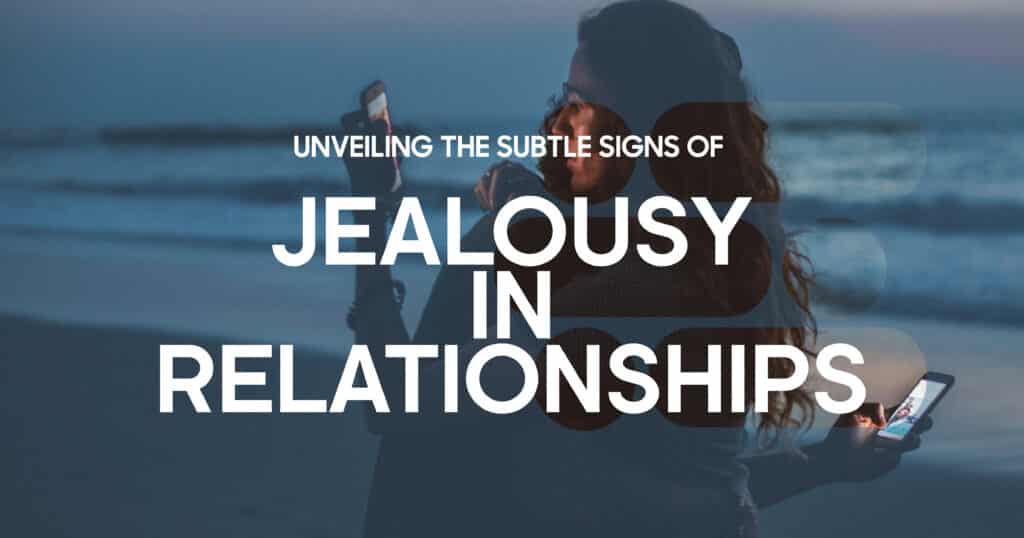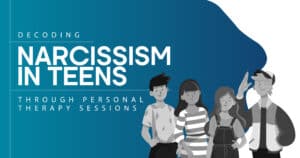Jealousy commonly causes turbulence in relationships. It creates unrest in the mind of a jealous party while leaving the coveted person in an emotional mess. While jealousy is linked to some psychological disorders, it’s not inherently a mental illness.
People have various ways of expressing jealousy to appear less controlling or spiteful. Does your sixth sense tell you your partner is acting jealous?
We’ll discuss some subtle signs of jealousy you can spot immediately, even when the next person seems to hide their emotions.
What Is Jealousy?
Jealousy is a complex combination of emotions, including anger and fear, that can manifest in different subtle ways. In most cases, it’s about the reluctance to let go of something valuable. When it comes to relationships, you might become jealous if your partner starts showing interest in someone else while they leave you hanging.
Usually, jealousy isn’t limited to the romantic setting. You might belong to a tight clique of friends that the integration of someone new could throw you a bit. In many cases, jealousy sows the seed of insecurity and doubt, while gradually fading the tight bond of friendships.
| Jealousy | Envy |
| Wanting to hold on more to something someone already has. | Strongly desiring what someone else has. |
| Fear of losing what you have. | Focus is on the coveted object or quality |
California Mental Health
Identifying the Subtle Signs of Suspicion and Distrust in Relationships
In a relationship, it might become hard to pinpoint if your partner is jealous or not. However, some patterned traits give that away easily. You should be able to identify these acts and respond accordingly. Let’s take a look at a few.
- They Make Frequent Comparisons. When someone starts out comparing themselves with you unnecessarily, that might be a sign of jealousy to watch out for. They might make comments like “Luck is always on your side” or “You’re always getting all the attention in the room.” Often, these folks might be insecure about your unique traits and envious of your achievements.
- Overly Critical Behaviors. When jealousy strikes, a once-loving boyfriend can start policing your actions and choices to pick out some flaws. They might start insisting you dress some type of way or wear your hairstyle how they prefer. Spouses have different expectations of each other’s looks; however, they aren’t overbearingly demanding about it. That’s a healthy relationship.
- Never Seems to See the Good in You. Jealous individuals can sometimes try to put you down to fuel their ego and make them feel better than you. It becomes evident when they undermine your actions or make you feel small. They’d rather talk down your big plan and suggest a minuscule project in its place.
- Controlling Behavior. Have you ever experienced a friend or partner asking you to act a certain way? This is another pointer of jealousy. They might ask to check your phone out of the blue or ask you to sit when you don’t want to. Usually, acts like this impact the emotional well-being of the person being controlled.
- Unnecessarily Suspicious. Rising suspicion is another sign of distrust in a relationship. It might manifest as your partner or friend stalking you or always hovering around you. In its extreme form, they might hire someone to either keep up with your socials or follow you everywhere without your knowledge.
How Envy and Comparison Fuel Resentment and Jealousy
Envy and comparison can spiral into hatred when there’s an underlying sense of inadequacy. Comparison involves constant evaluation and an exaggerated perception of others’ achievement, leaving you with a distorted perception of your condition.

An envious person desires what someone else has. It involves the nagging feeling of discontentment stemming from the idea of lack and the desire to have. When the coveted idea, object, or achievement becomes unattainable at that instance, the perceived rival bears the brunt of resentment.
Quite similar is the feeling of jealousy rooted in the fear of losing something valuable. Having toiled to incur a possession, there’s a natural feeling to confer protection. But with intertwined comparison with what others have comes the feeling of inadequacy despite such belonging.
The Impact of Resentment: How Jealousy Can Affect Relationships
The aftermath of jealousy can be far-reaching to include mistrust, tension, and insecurity in relationships. In the end, this sows the seed of resentment that could potentially turn a jolly experience sour. Here are the effects of jealousy on a relationship.
| Impact of Jealousy on Relationships | How it Happens |
| Trust Issues | Trust is the bedrock of any form of partnership. When jealousy is allowed to thrive unchecked, it could erode trust quickly. The constant feeling of envy leads to frequent suspicions that pile up into resentment that damages relationships. |
| Hypervigilance | When there’s jealousy, partners and close friends can become extra watchful of each other. They start living on the assumption that their spouses are disloyal or hiding something. This feeling could be expressed in the form of rage, paranoia, or anger. Ultimately, splitting both individuals apart is unmanageable. |
| Possessiveness | Another way jealousy can result is in the form of expressive ownership. A jealous partner may try to dictate the other person’s actions, outings, or fashion preferences. Such control is often suffocating and can die out the partnership. |
| Detachment | When a person becomes the target of jealousy, they might withdraw from social gatherings, friendships, and other engagements. More often than not, this is an attempt to keep in some sanity and avoid conflicts in the relationship. But this is harmful to their mental health and overall well-being. |
| Emotional Stress | Jealousy comes with hefty emotional burdens that are sometimes difficult to deal with. The associated insecurity could fuel the feeling of anxiety, panic, or depression. |
California Mental Health
Overprotectiveness: When Caring Turns into Controlling Behavior
While overprotectiveness can rumble the language of love, it can also wield the weight of control. In a relationship, you expect some level of concern for your well-being, healthy enough to enhance trust. However, sometimes, the supposed shelter can feel like a prison that pins you down. A partner can say they’re “doing this for you,” but quietly putting you on a leash.
The line between concern and overt control can be a little blurry sometimes. A quick tell can be a grip that’s too tight with a screaming refusal to let you go. On the surface, it might seem like guidance to help achieve your goal. However, it’s a disabling effort to clip your wings and keep you subservient. This is where the narratives about toxic relationships begin.
Hence, it begs the question of where care ends and control begins. Indeed, the latter can be disguised as love, with the “bothersome reach” explained as “worry.” However, the ensuing damage says it all. There’s brewed resentment that stems from stifled independence, constant belittling, and privacy invasion. Always note that healthy love keeps your head above water. But the toxic type drowns you in worries and insecurities.
Strategies to Address and Overcome Jealousy in Relationships
If you desire to keep your relationship going, you may need to tackle the cause of jealousy. The important steps involve talking things through with your partner before making a decision to remain or leave.
- Start a gentle conversation about it. Present it like it’s a pressing problem needing solving in the relationship, and keep your cool.
- Communicate your feelings. Express how you feel about their behaviors and be unapologetic about it.
- Request a change as you give them a chance to talk. Ask for positive changes and listen to their side, also.
- Evaluate their response and make your decision. Take time to make sense of their narrations and determine whether your stay or exit the relationship.
Explore CA Mental Health for Relationship Guidance
Being the victim of a jealous partner can be challenging to overcome alone, especially because the mental impact can persist for a while. At CA Mental Health, we acknowledge your experience and reckon with you as a resilient survivor.
Feel free to visit CA Mental Health today for any support you may need.

California Mental Health
FAQ’s
How can insecurity lead to possessiveness and jealousy in relationships?
People who fear losing their partners due to inadequacy may see the need to become controlling. Therefore, they constantly keep tabs on their partner’s actions and choices.
What are the subtle signs of suspicion and distrust that indicate jealousy?
Jealousy with a background of suspicion or distrust can manifest as excessive criticism or stalking. The envious one can become so sneaky that they prowl around and spy on their partner.
How do envy and comparison contribute to feelings of resentment and jealousy?
Envy and comparison cause a person to feel inadequate about their situation relative to someone else’s. In the end, they become bitter towards these people they perceive as superior.
In what ways can overprotectiveness manifest as controlling behavior due to jealousy?
When jealousy causes someone to be too protective, it could foster some other negative behaviors. These may include excessive monitoring, constant accusations, or pinning of threats and guilt.
What strategies can help address and overcome jealousy to prevent resentment in relationships?
Good communication is a great way to start addressing jealousy in relationships. This is followed by understanding, trust-building, and eventual resolution of the root cause of the act.







